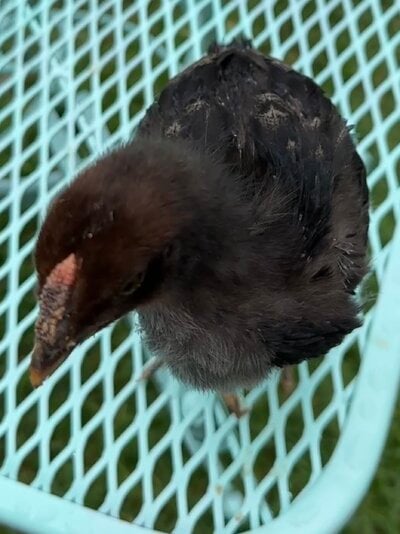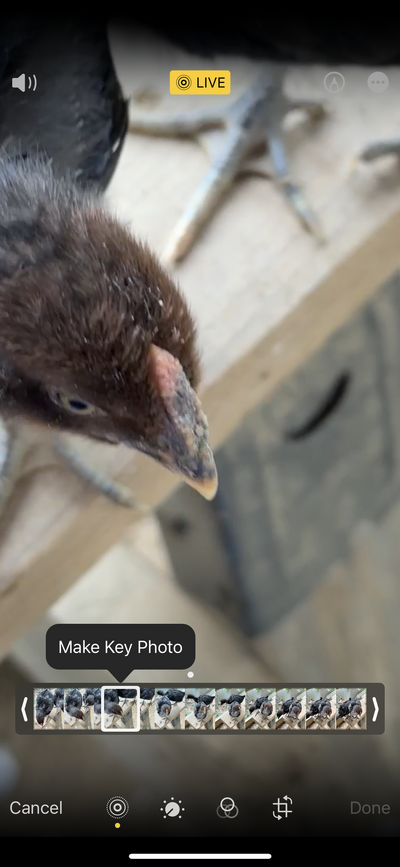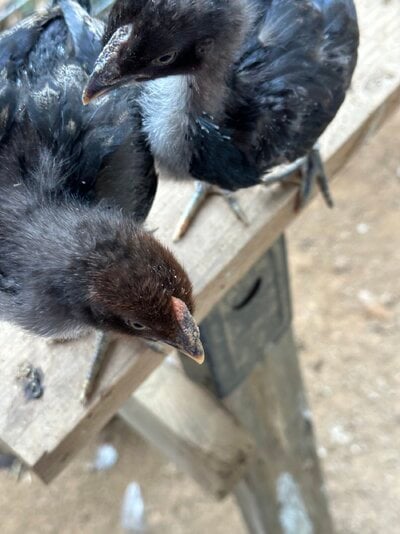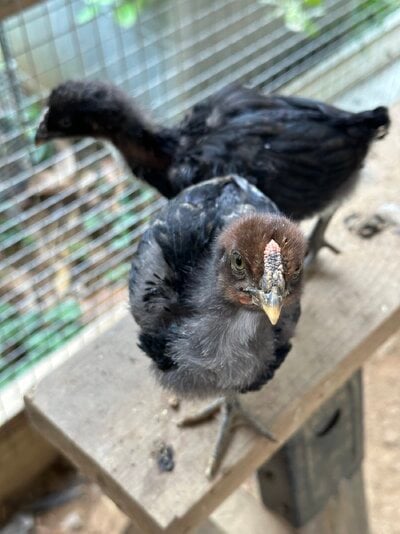My hens are all various standard size not rare heritage breeds from feed stores (except for my Rhode Island Blue and a Blue Rock hens). My first rooster was an Orpington, second and current rooster was his son- orpington x Rhode Island blue hen. I have no ayam cemani or silkie chickens in my flock.
So why do some of my chicks have black combs?
They seem to come mostly from the chickens sired by current rooster (Orp x Rhode Island blue) and out of my SLW hen. But I also have 1 from my Blue Rock (aka Sapphire Gem) hen. I know some chicks outgrow it, but I have a 4 month old pullet whose comb is still black. So what gives?
Here is a post I made about my 4 month old pullet. Most recent pic is in the comments.
And here is a post I made about my current rooster and his now 4 month old son having black freckles on their comb. In this post, one reply mentioned melanosis. Could that explain the black combs?
Here are my current black combed babies. The rose combed chick in the 1st and 3rd pics are a full sibling to the 4 month old pullet. Mom is SLW. The chick in the middle pic that I’m holding is by the same rooster and out of a Blue Rock (Sapphire Gem) hen.
Any of you genetic experts (or anyone who understands it better than I do) have an idea what’s going on here? And what it means for future offspring from these black combed babies?
So why do some of my chicks have black combs?
They seem to come mostly from the chickens sired by current rooster (Orp x Rhode Island blue) and out of my SLW hen. But I also have 1 from my Blue Rock (aka Sapphire Gem) hen. I know some chicks outgrow it, but I have a 4 month old pullet whose comb is still black. So what gives?
Here is a post I made about my 4 month old pullet. Most recent pic is in the comments.
And here is a post I made about my current rooster and his now 4 month old son having black freckles on their comb. In this post, one reply mentioned melanosis. Could that explain the black combs?
Here are my current black combed babies. The rose combed chick in the 1st and 3rd pics are a full sibling to the 4 month old pullet. Mom is SLW. The chick in the middle pic that I’m holding is by the same rooster and out of a Blue Rock (Sapphire Gem) hen.
Any of you genetic experts (or anyone who understands it better than I do) have an idea what’s going on here? And what it means for future offspring from these black combed babies?

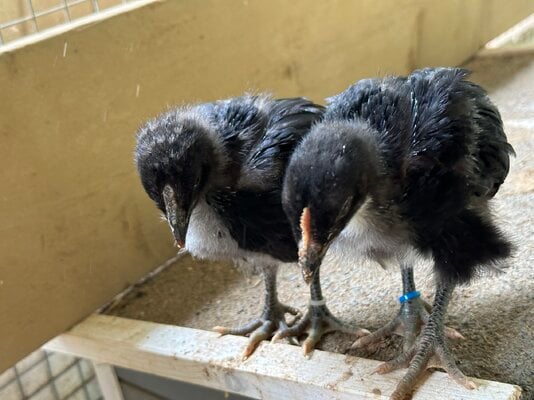
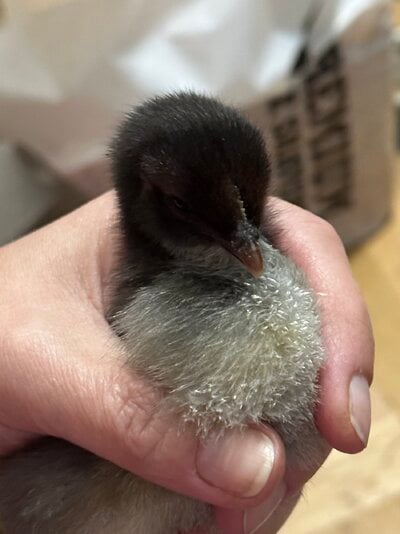
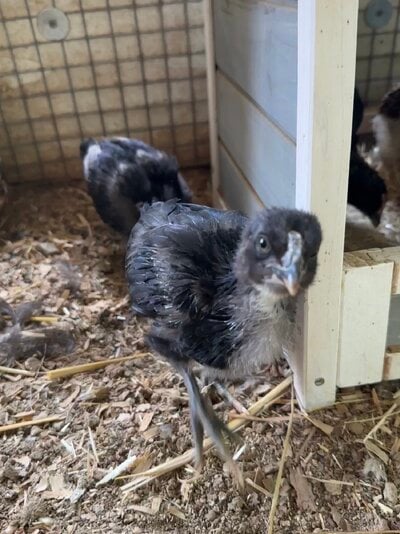


 But it's not abnormal and nothing to worry about.
But it's not abnormal and nothing to worry about.